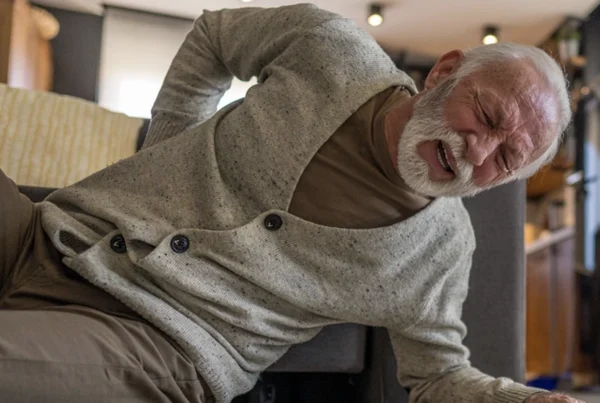Leaving Harvard’s rigorous environment, I found myself grappling with more than just academic challenges. Chronic pain and burnout became my constant companions. For over a decade, since departing Harvard’s Ph.D. program in Music (2010-11), I have wrestled with post-traumatic stress, worsened by undiagnosed burnout that exacerbated my chronic back pain and digestive issues, which began in 2009.
My daily life became a struggle with muscle spasms, knee pain, and even problems with walking. Meeting an exceptional chiropractor in Edmonton in 2015 was a turning point. I was advised to stop playing my beloved musical instrument, the harmonium, a recommendation that felt like losing a part of myself. The harmonium, a source of deep learning and connection with my Ustad, had inadvertently contributed to my shoulder blade issues. Despite the emotional toll, I had to reframe my relationship with music and find new ways to continue my learning and practice.
By 2017, my walking issues led to advice against sitting on the floor—a traditional posture for performing music. This forced me to adapt my performance methods to accommodate my physical limitations, significantly impacting my confidence and delaying the release of my debut album: Mannat which was supported by the Cultural Diversity Award (2015). I even performed while sitting on the floor in various settings, including recording my album at Edmontone Studios (2018-2019) and Canadian Music Week (2021) but it had significant post-performance consequences.
The realization that I couldn’t push through as I had in the past was slow and painful. My education at the University of Alberta, which opened many doors, now faced new constraints imposed by my body. Like Christine Miserandino’s Spoon Theory, which uses spoons to symbolize the finite energy of those with chronic illness, I needed a new framework to manage my chronic pain and burnout. This led me to a place of acceptance, discovering new pathways for living with my body and confronting the unpredictability of my health.
On days when I ignored my body’s signals, migraines would often result, forcing me to adapt my plans. Yet, amid these challenges, I found solace in creative expression. Songs like ‘Anticipating’ and ‘Baydaari,’ which featured in my Cross-Canada tour for suicide prevention awareness (2020), and performances for Alberta Musical Theatre (2020) and International Women’s Day (2021), became crucial to my recovery from burnout.
These creative outlets helped me reclaim aspects of myself that had been sidelined. Inspired by this journey, I developed the Color Your Energy approach—a method that complements the Spoon Theory and provides a creative way to manage fluctuating energy levels, particularly beneficial for those with chronic health challenges, anxiety, and burnout.
It was only through acceptance that I discovered new pathways for living with my body and new avenues for success that involved confronting the uncertainty of life, unpredictability of my body, and undependability of the slowly dissipating world of support. I experienced suicidal thoughts that have intensified since 2015, but enduring these dark periods also taught me that the art of living lies in nurturing trust in life and learning to move forward with faith.
At times, I had no choice but to allow myself space for creative expression. Amid chronic pain, migraines, and burnout, I wrote songs like Anticipating, Baydaari, and Primordial Covenant which were later featured in the Cross-Canada tour for suicide prevention awareness and hope (2020) and in my performances for the Alberta Musical Theatre (2020), International Women’s Day in Alberta (2021), and Map the Systems Canada Finals (2024).
These creative meanderings not only led me to reclaim aspects of myself that I had sidelined to meet the expectations of those who saw me merely as an academic rather than a creative, but they also helped me recover from deep burnout caused by chronic stress and pain as a result of systemic pressures to outperform myself. This journey inspired me to develop Color Your Energy—an approach, that complements the famous Spoon Theory and offers a creative method for managing your day, particularly on foggy days when you can not even visualize what your energy might be like an hour from now. This method is especially beneficial for those dealing with chronic health challenges, anxiety, and burnout, where counting spoons of energy for the day is no longer feasible.
Recent studies have revealed the fascinating ways in which mushrooms communicate and connect through a complex network of mycelium, often referred to as the “Wood Wide Web.” This underground network allows mushrooms to exchange nutrients and information through a 50-word language, demonstrating a form of interdependence and adaptability in nature. Just as mushrooms dynamically adjust their interactions based on their environment, our own approach to managing energy can benefit from a similar understanding of fluidity and connection. In the second part of our exploration, we will dive into the Color Your Energy approach—a method that, like mycelium, adapts to the shifting landscapes of our daily lives and energy levels, offering a more nuanced and compassionate way to navigate chronic pain and burnout by facilitating creative flow.
© copyright 2024. The Deep Listening Path. Website. Facebook. Linkedin, Instagram, Youtube. Tiktok







